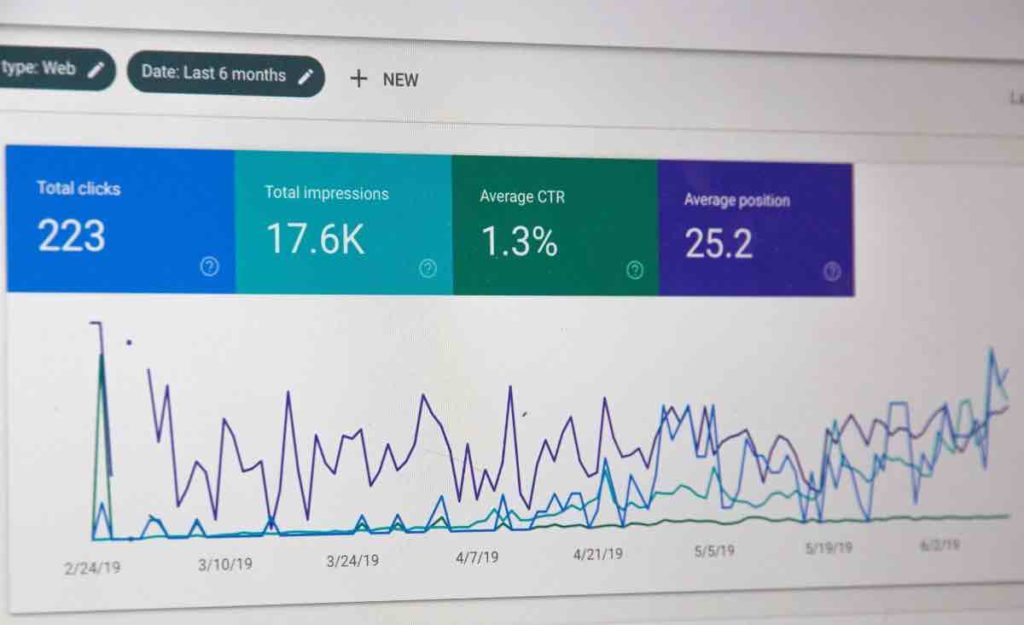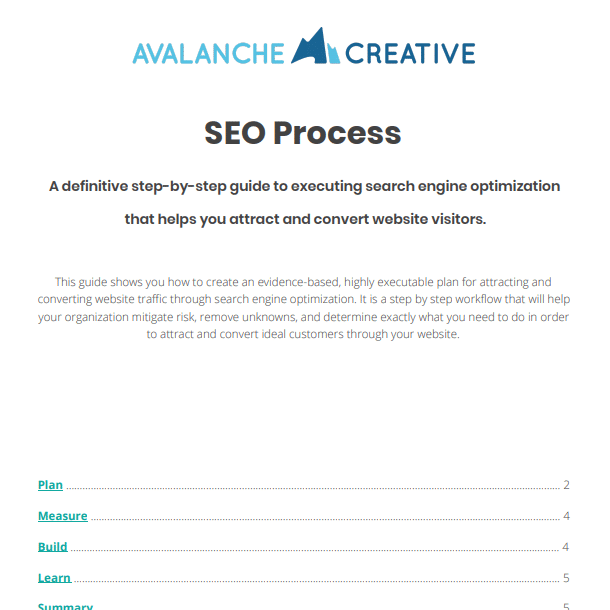A 3-Step Process to Identify Valuable Competitor Traffic
This three-step process will help you determine how your competition gets valuable organic traffic from search engines and what you can do about it. (This article comes from the Avalanche weekly email.)

Category: Search Engine Optimization | Tags: avalanche email, competitive analysis
Competition is a good thing.
It doesn’t always feel like that’s true. But, it drives us to be better and achieve more.
It’s no different in the world of digital marketing. But because businesses don’t play each other in the same way a couple of sports teams do, it’s hard to keep score.
But, f you aren’t keeping some kind of score then you probably aren’t comparing yourself to your competition, which means you may not be competing and could be falling behind.
Keeping score motivates you to keep playing and to work harder in practice.
One of the best ways in digital marketing to keep score is by identifying how your competition gets valuable traffic to their website.
We do this with an SEO competitive analysis.
A Simple, Three-Step SEO Competitive Analysis
Now, there are many different ways to perform one of these, but here’s one simple way to do one right now in the next 4 minutes:
Watch the video below to learn how to complete these steps or keep reading.
Before going through the 3 steps, you’ll need a keyword research tool.
-
- Use a tool like SEMRush (this link is for a free trial).
- Enter your competitors’ domain (determining your competition can depend on variables like your company’s offerings and location).
- Go to Organic Research and filter Traffic % to see the percentage of traffic driven to their site via specific keywords:

The image above is a screenshot of the top keywords that drive organic traffic to cloud accounting software, Freshbooks.
You can see that the second biggest driver of traffic to their site from search engines is the keyword “invoice template” which gets searched around 90,500 times per month.
Congrats. You’ve just started your first competitive analysis. Do this to a competitor’s site and you’ll start gaining valuable insights.
Should You Compete for That Organic Traffic?
Now, you’ve identified where your competitor is getting valuable traffic from, but more importantly, you’ll want to start asking, “how, why, and should I implement a similar strategy?”
I’m sure at this point you may be thinking, “if I do something similar, won’t I just be copying my competition?”
Let’s put it this way:
The car was not a criticism of the horse and buggy. It was an improvement.
If you build something that solves the same problem, but better, you aren’t copying. You are improving.
The best way to determine whether or not you should and can compete is to ask yourself an additional three questions:
First, let’s assume you found out that one of your competitors has a blog post that is bringing in all kinds of great traffic.
We’ll define “great traffic” by keywords you’d like to rank for that people are also bidding on in Google Ads. This proves they hold some value to others.
Question 1: Could we provide more value?
Take a look at your competitors’ blog post and related resources. In theory, could you provide more detail, a better tool, a great set of training videos, etc?
If you think it’s possible to help your customers with the possible intention(s) behind their search, move on to the next question.
Question 2: Should we do it?
This is a pretty loaded question that’s not as easy to answer as #1. To make it a little easier, ask your current customers if the blog post/resource/tool/etc would be valuable to them.
There’s also the question of “will there be a return?” Another loaded question, but if it could benefit your customers for the foreseeable future, it is probably worth it. If you’ve said yes to building it, move on to the last question.
Question 3: Who will do it?
If you don’t already have a team that’s dedicated to creating valuable content for your customer, are you truly capable of executing?
It can be fairly easy to get past questions 1 and 2. But, a lot of big ideas that provide value to your customers never make it past the idea stage.
Great ideas with poor execution are effectively worthless.
But, let’s say you do have a team that can execute. Congrats. You should strongly consider creating that valuable content!
Share this article:
The Avalanche Email: Fun. Simple. Educational. No Selling.
Learn Result-focused SEO & Content
Join over 2,272+ others who get one email every Wednesday with simple instructions on how to get more website traffic and leads through SEO and content marketing. (Learn more about the email)
Share this article:





